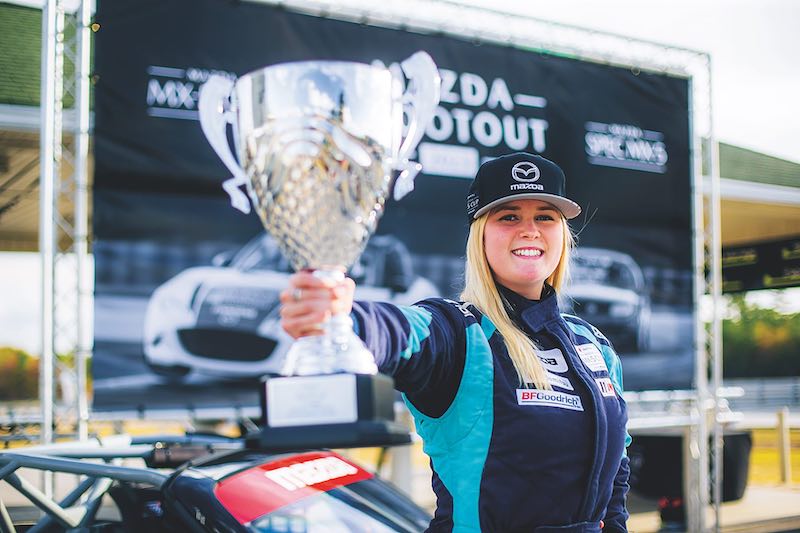When a company has been doing something so long, particularly when that something is not their core activity, then they must be doing it for good reason. The company in question here is Mazda, and the something is their driver scholarship program.
The 2023 Mazda Scholarship Shootout at Carolina Motorsports Park marks Mazda’s 16th year of awarding a quarter-million dollars in funding to up-and-coming drivers who are making their way in a very expensive sport.
“The Scholarships are something that we hold closely to our hearts,” says Mazda Senior Manager of Motorsports Jonathan Applegate. “We consider ourselves an enabler of dreams. The Shootout is right in the middle of it and is really the golden thread that connects our grassroots programs through the MX-5 Cup and beyond.
“We see this as a pivotal point in a driver’s career,” he adds. “Motorsports is among the most expensive professional sports, which means there’s a high cost of entry barrier. So, we continue to create opportunities that help get aspiring drivers to the next level.”
Recent scholarship winners such as Connor Zilisch, who’s gone on to success not only in the Idemitsu Mazda MX-5 Cup Presented by BFGoodrich, but also in the Trans Am series, show that the Mazda Scholarship program is intent on discovering and promoting talented drivers. Zilisch is just one example of many.
When it comes to running the Scholarship Shootout, Mazda assembles a varied team of judges, from driver coaches to media members, to ensure that all aspects of discovering driver talent are considered.

“There’s nothing magical about the selection process, but there is a lot of spirited conversation,” says Applegate of the deliberations among the judges that go on throughout the two days of the Shootout. “It comes down to understanding who these racers are, and they understanding who we are. I think that’s something that’s super critical in the evaluation process. The finalists should know who is investing time, energy and resources into them.
“Showing up at the Shootout knowing the key players, especially the judges and those that might have some professional race experience, is huge,” he adds. “Overall, there are a few key data points we focus on such as their pace on track as well as how they’re progressing. Just as important is how they’re communicating with the coaches, analyzing and receiving feedback, and then acting on it positively.
“We’re looking for progress, we’re looking for attitude, and on the other end is evaluating who is the most well rounded outside of the racecar. That includes displaying some sense of how the business of being a racing driver works and understanding that speed isn’t everything.”

